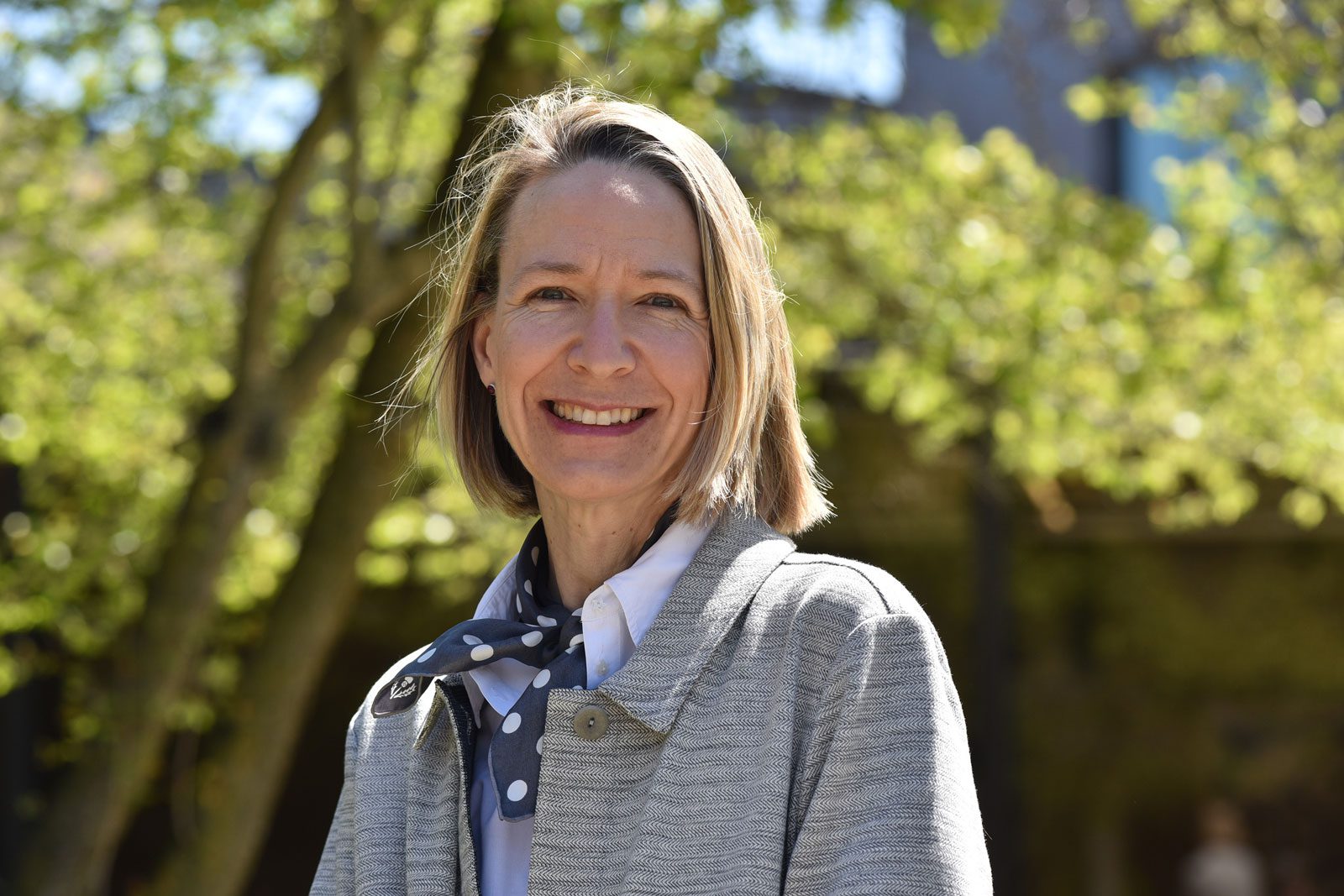Larissa Larsen will serve as the next chair of the urban and regional planning program at the University of Michigan Taubman College of Architecture and Urban Planning, following a nomination from the urban and regional planning program’s governing faculty and her appointment by Dean Jonathan Massey.
Larsen is an associate professor of urban and regional planning, director of the urban and regional planning doctoral program, and oversees the physical planning focus area within the master’s degree. Her two-year appointment as urban and regional planning program chair will begin on July 1.
She succeeds Associate Professor Joe Grengs, who has served as chair for the past four years.
“I am excited to take on this new role leading the urban and regional planning program at Taubman College,” Larsen said. “Our society is rethinking how to shape better communities to serve all people in ways that recognize the challenges and opportunities around social justice and sustainability — and planning is positioned to participate in making changes. I look forward to helping our students and faculty find ways to highlight their unique insights and abilities.”
Larsen joined Taubman College’s faculty in 2005 and became director of the urban and regional planning doctoral program in 2019. Her research focuses on the urban environmental problems of extreme heat/urban heat islands, water pollution and infrastructure, and stormwater flooding. Larsen’s research is highly interdisciplinary, and she incorporates many physical/natural/health concepts and works with faculty in public health and civil and environmental engineering. In 2014, Larsen began a research collaboration with Dr. Kumelachew Yeshitela at Addis Ababa University in Ethiopia. Together, they have been studying the city’s rapid, low-density development and how this impacts the provision of water and ecosystem services. She is expanding this research beyond Addis Ababa to ask questions about patterns of urbanization and water infrastructure in other East African cities.
In 2019, U-M President Mark Schlissel appointed Larsen to the U-M President’s Commission on Carbon Neutrality, which brought together the U-M community and regional partners to explore how U-M can reduce its carbon emissions to levels that are environmentally sustainable.
Prior to arriving at Taubman College, Larsen held assistant professorships in U-M’s School of Natural Resources and Environment (now the School for Environment and Sustainability) and Arizona State University’s School of Planning and Landscape Architecture. She received a Doctor of Philosophy in Urban and Regional Planning from the University of Illinois at Urbana-Champaign and a Master of Landscape Architecture and a Bachelor of Applied Science both from the University of Guelph in Canada.
“By chairing our doctoral degree in planning and serving on our Executive Committee, Professor Larsen has provided valuable collaborative leadership to the planning program and to Taubman College,” said Taubman College Dean Jonathan Massey. “As a member of the President’s Commission on Carbon Neutrality, she is showing the university how we can effectively decarbonize our campus and operations. We are fortunate that Larissa is stepping up to steer the program in urban and regional planning.”
As part of the University of Michigan, Taubman College’s urban and regional planning program offers a Bachelor of Science in Urban Technology (launched in 2020), a Master of Urban and Regional Planning, and a Doctor of Philosophy in Urban and Regional Planning. The college also offers graduate certificates in real estate development, healthy cities, and urban informatics and in 2020 launched an undergraduate minor in real estate.





